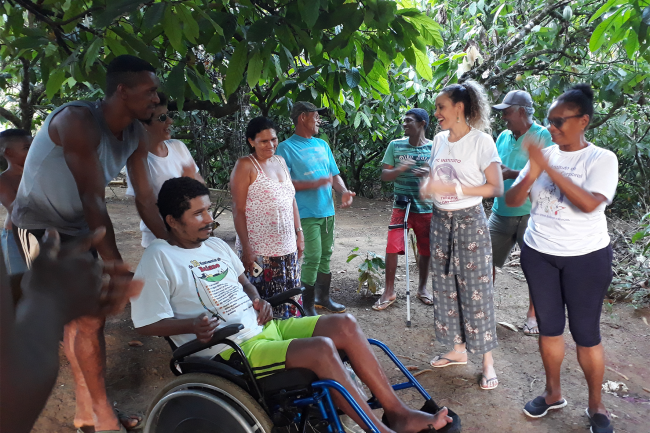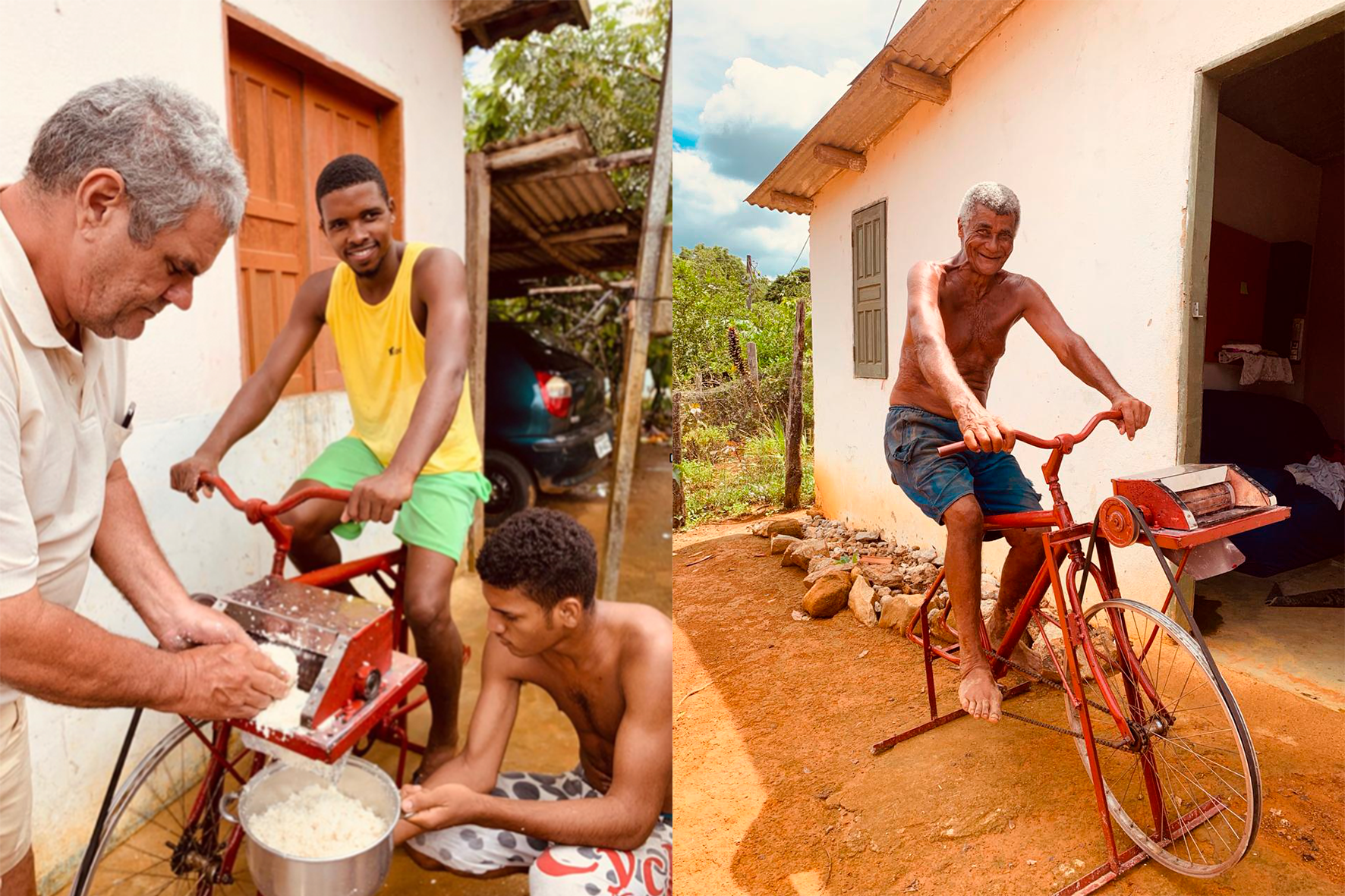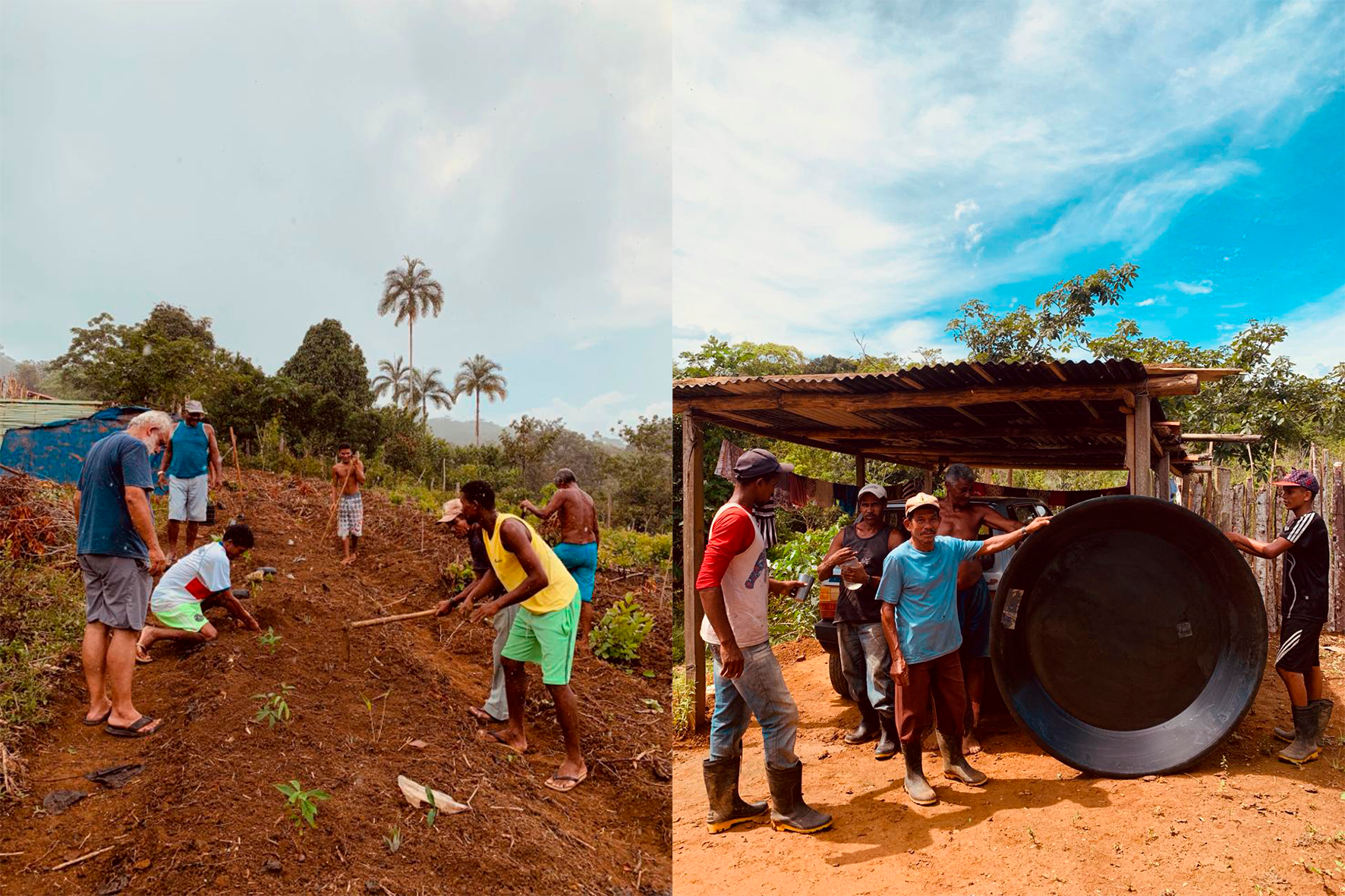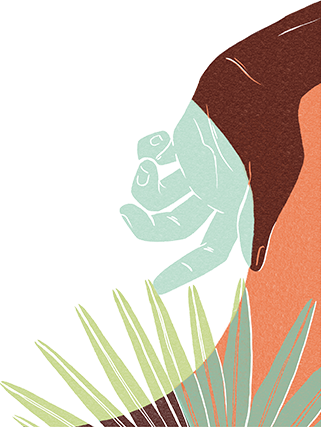 16.03.2020
16.03.2020
Environmental justice and the reality of people living with disabilities: getting results and motivating the community
By Attilio Zolin with information from Eduardo Alfredo Moraes Guimarães (ITC)
In September 2019, we published an article about the challenge accepted by the Casa Fund: to issue a call for projects that pulled together environmental justice and the reality of people living with disabilities. The selected project was submitted by the Institute of Body Therapy for Human and Community Development (ITC) in partnership with the São Cosme e Damião Agroforestry. The project “Indigenous and African ancestry in the hubbub of the agrarian reform settlement” was executed in the Floresta do Sul Settlement, municipality of Maraú, Bahia state, beginning its activities in September 2019. From its inception, it generated great interest in the community.
Even before its conclusion, the project has had positive results. “The project has encouraged people in the agrarian reform settlement,” declared Eduardo Alfredo Moraes Guimarães (ITC). The community that faces difficulties in keeping young people interested in local traditions also suffers from lack of psychological and physiotherapeutic support for elderly people, who have mobility issues caused by long years of work in the cocoa fields. Dionísio A. Pereira Nunes, 47, is one of the most moving cases, as he ended up paraplegic after an accident at work. Lack of adequate treatment worsened his situation and led to partial impairment of upper limb motion.
The project is an interesting combination of activities reflecting the complexity of this issue. Among actions developed with Casa Fund support, there are practical classes of agroforestry, construction of a flour mill, and yoga classes. This combination of different activities has been fundamental in uniting the community and stimulating the participation of people with reduced mobility. An encouraging development was the participation of Dionísio Nunes. “He left his bed; he started to interact with the community. This is an important issue! The project did it. You should watch him practicing yoga,” said Eduardo Guimarães.

Test of the cassava grater. During this test, production of a type of flour without using the stove was discussed (In the photo, Marcio Tannus, the person hired to make the grater). Photo: Maria Eduarda Andrade Guimarães.
Test of the cassava grater. During this test, production of a type of flour without using the stove was discussed (In the photo, Marcio Tannus, the person hired to make the grater). Photo: Maria Eduarda Andrade Guimarães.
“Giving yoga classes in the Floresta do Sul agrarian reform settlement has been a transformational experience. We can practice yoga under the trees, barefoot, listening to the forest sounds, in very close connection to nature. In addition, the idea of an inclusive practice enabled the interaction of all those directly and indirectly involved in the project. We move our bodies, breathe, and vibrate with the energy of love and cooperation. At each practice, we have the opportunity to look into the eyes of someone on our side, thus building a support network. We are strengthened to move on and build together the activities proposed in the project. This reinforces the feeling of living in community.” – Maria Eduarda Andrade Guimarães, volunteer yoga teacher in the project.
In December, the community concluded the first module of the agroforestry system management training course, and planted the first demonstration area in the settlement. This area is close to the place where the community flour mill is being built with funds from this project.
Seedlings of large trees were planted, such as kola tree (originated in Africa and used in rituals), Bahia rosewood (used to make furniture and guitars), Brazilian mahogany (much appreciated by the furniture industry), cedar, and other species, together with a muvuca (mixture of native seeds, green fertilization and sand) with seeds of cocoa, cupuassu, moringa, assai palm, peach palm, rose apple, jackfruit, and so on. With the objective of protecting and “creating” the trees, we planted cassava and pineapple seedlings. All this agroforestry design was collectively discussed and species were selected based on the knowledge of those involved in the workshop.

Agroforestry Systems Workshop on December 15, 2019. Planting after selecting species. Photo: Maria Eduarda Andrade Guimarães.
The workshop was a gathering of different generations with positive results. However, there are still many challenges to overcome: the strong rain that wet the ground and enabled the agroforestry workshop also blocked Dionísio Nunes from participating because of his reduced mobility. The ITC team thinks Dionísio needs medical treatment in Salvador. How would it be possible? We still have no answer. The challenge of uniting environmental justice and the reality of people living with disabilities is big, but slowly we will find solutions. The Casa Fund should repeat this experience in 2020, with a new call for projects intended to unite these two complex issues.
This project was supported through a partnership between Casa Fund and Global Greengrants Fund.
